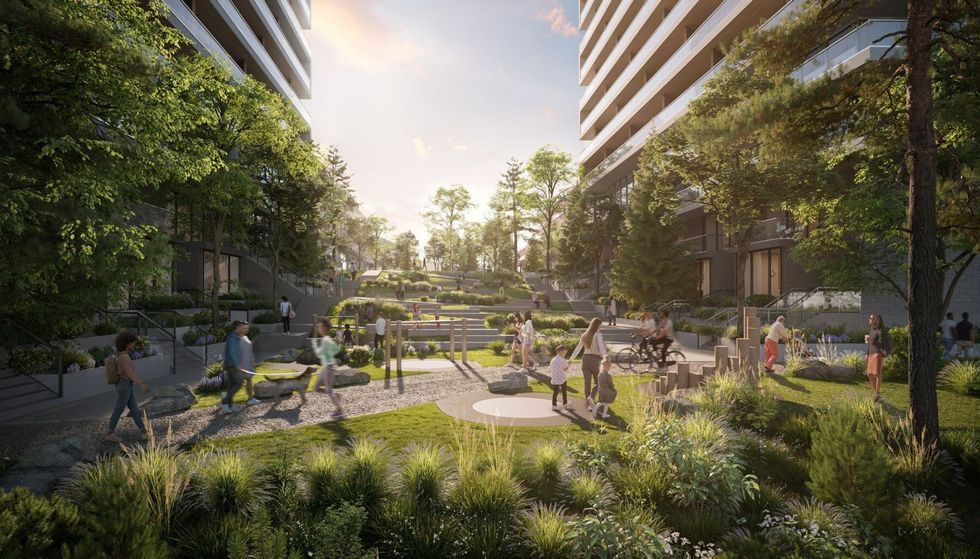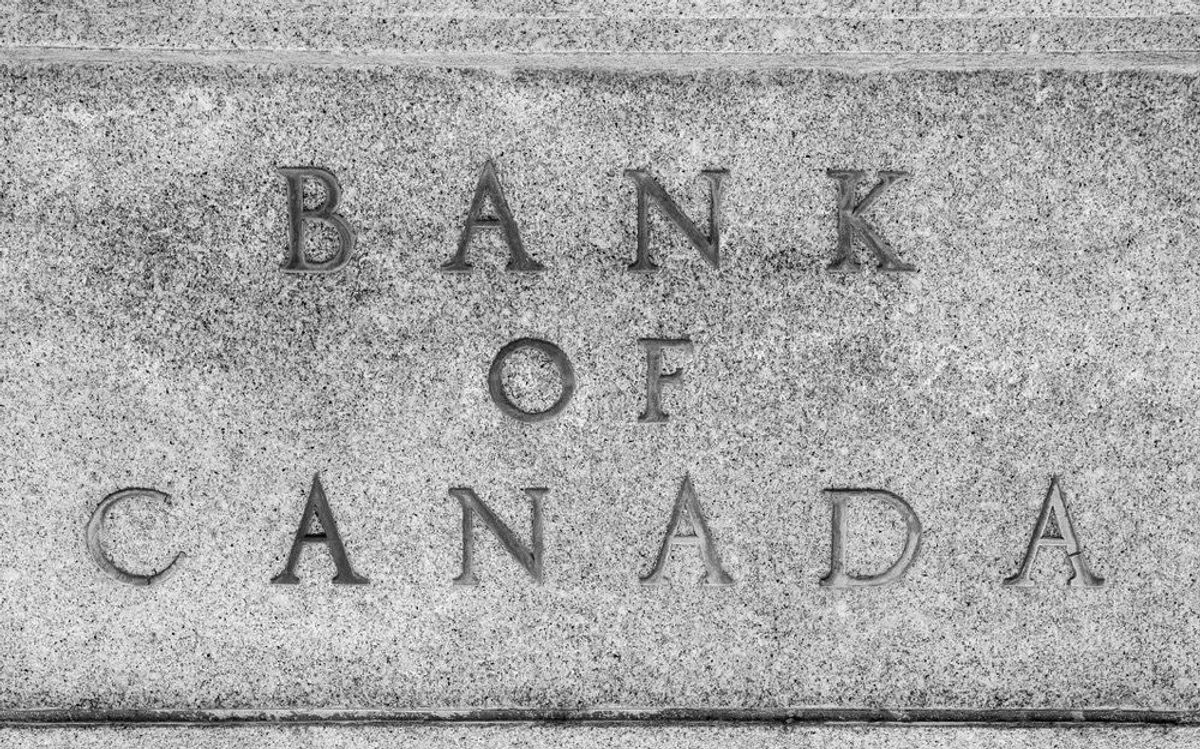Peter Edgar, Chief Executive Officer of Vancouver’s EDGAR Development and co-founder of Upfield Capital Management, says if fixing the crisis is his industry’s job, then developers could use a break in bringing costs down. The industry refrain of late is that hefty government fees to cover the costs of new infrastructure as well as policies that curb speculator demand are adding to the high costs of labour and materials. Profit margins are thinner than ever; foreclosures are commonplace.
Edgar didn’t want to comment on specific policies, but he said that generally there are just too many regulations.
“Here’s the thing, all policy decisions should consider that development is a very risky business, and market housing will only be built if it’s profitable to do so. We provide 95% of housing, and we can only do it if it’s profitable. Right now, it is not profitable.
“We can continue to find solutions, but I don’t feel that we are being heard. It’s cumulative, they are piling it on. It’s just not tenable anymore,” says Edgar, who started the company in 2009.
Despite the challenges, Edgar has developed a strategy to grow. A few years ago, he brought close friend Matthew McClenaghan on board to handle major acquisitions and last year, he was appointed President. Edgar also co-founded Upfield Capital Management with Rob Greer. Edgar’s father was a developer in Alberta, where EDGAR Development also operates, and he watched his father go through periods of “feast or famine” in the 1980s, but he learned that there’s always money for a good deal. The trick is finding the good deals.

“Over the last couple of years, capital has become scarce, and there is a lot of competition for that capital, which means the returns required to attract available capital need to be very high. But there is always opportunity out there, and we spend every day actively searching for new deals.”
Edgar says developers are in a can’t-win situation. The general perception is that his industry chases fat profit margins and influences government policies to help them achieve that goal. Meanwhile, government looks to developers to fix the affordability crisis.
Canada Mortgage and Housing Corporation Deputy Chief Economist Aled ab Iorwerth estimates that 95% of Canadian housing stock is market-rate. The remainder is below-market social housing. He said in a year-old report that “private ownership is essential,” and “Our pressing need for more housing supply – particularly purpose-built rental housing – means that the private sector needs appropriate incentives to invest the massive sums required.”
ab Iorwerth also holds the position that more supply will fix the crisis, but as we know, Toronto has a glut of new condos right now, so consumer cost is obviously as key an issue in fixing the problem as is supply.
“Someone made the analogy that farmers are not expected to sell produce below cost, yet developers are vilified for seeking profit on projects,” says Edgar. “Both operate within market-driven systems, yet the narrative shifts when it comes to housing. Developers face criticism for pricing homes based on market demand despite rising costs in land, labour, and materials.”
Tony Letvinchuk, Managing Director at Macdonald Commercial Real Estate, says that although it’s not all bad news, land sales have stalled. Demand is not there like it was in 2022. There was a massive spike in June but that was a response to the federal government’s tabled increase in capital gains tax that took effect on June 25, creating a lot of confusion and uncertainty, says Letvinchuk.
“The tabled initiative to effectively raise capital gains taxes has had an enormous impact on land and income property sales in Canada for the month of June 2024 before falling back to compressed levels in July.”

The capital gains rate increased from 50% to two-thirds on the capital gains amount that exceeded $250,000 for individuals who are selling secondary or recreational homes. If the property or asset is held by a corporation, the entire capital gain is taxed at the new rate, a particularly hard hit for investors.
With a slow pre-sale market, developers are turning to rental developments.
“At the end of the day, even with the spike of June sales – due to the increase in large part to increase in tabled increase in capital gains inclusion rate not yet passed – sales volume in Metro Vancouver is only at last year’s levels, which is nowhere near adequate to bring on more residential supply of rental and home ownership to satisfy the immigration levels,” says Letvinchuk. “I would also comment that there are many projects that were approved over the last year or two getting organized for their presales and construction that have converted over to rental. There are more rental buildings coming out of the ground than home ownership condo buildings. That’s a new trend in our Metro Vancouver marketplace, because they don’t have to rely on end-unit sales which are weak and not the end price-per-square-foot attainable in earlier times.”
He adds that added density alone won’t be the answer because consumers must be able to afford the price-per-square-foot to make a pro forma pencil out. Again, Toronto’s new condo market is a cautionary tale. That’s why Letvinchuk is in favour of re-opening the doors to foreign investors, who can afford pricier properties and therefore stimulate overall market growth.
“In that sense it’s a very positive aspect of developing more rental and home ownership options.”
EDGAR is also moving further into rental housing, including a specialty arm devoted to social housing. Development of EDGAR's 23-acre Portwood project in Port Moody is a mix of strata condos, market-rate rentals and below-market rentals that will operate in collaboration with BC Housing and two nonprofits. The developer received grant money from the province, funding from senior levels of government, financing through the CMHC, and a break on $560,000 in fees from the City of Port Moody. The developer, which just formed a new company, EDGAR Equitable Housing, contributed around $25 million worth of property toward the 133 units of social housing. The purpose of EDGAR Equitable is to partner with nonprofits and programs such as BC Builds, a new provincial initiative that uses public lands to develop below-market housing. EDGAR is in pre-development with BC Builds to build another 160 units of social housing in Langley, using city land.
“That’s a part of our business we would like to grow,” says Edgar. “We are tracking it really closely, and we see that as a really great opportunity where the private sector can add their experience and deliver affordable homes in partnership with the province and with municipalities.”

Several municipalities now require any displaced existing tenants to be paid out in lump sums or relocated and returned to the new building at the developer’s expense. The city of New Westminster council recently supported three readings to a zoning amendment bylaw for EDGAR’s controversial proposal at 88th Tenth St. that would allow towers up to 53 storeys in height at Columbia Square Plaza, a huge master planned transit community that will include 3,800 homes, retail, office, and park space. There are several recommendations by council that the developer would still need to address, including a new school for 530 children.
The triangular shaped property is a low-rise commercial area, and Edgar says one reason they were attracted to the site is because there is no residential displacement. He said he’d “love” to see a school on the site.
But rezonings are a complicated business that take years, and going forward, he’s looking for projects that don’t require them, and don’t come with the expense of a tenant relocation policy. Faced with increasingly complicated bureaucracy, he’s looking to simplify.
“I have less appetite to take on rezonings now than I did at the start of my career,” says Edgar. “They take far too long,” he says, “and during the period of time that you are going through a rezoning, you are exposed to changing market conditions, to black swan events, changing policies, and it’s just incredibly risky to be exposed to the market for that length of time.”





















